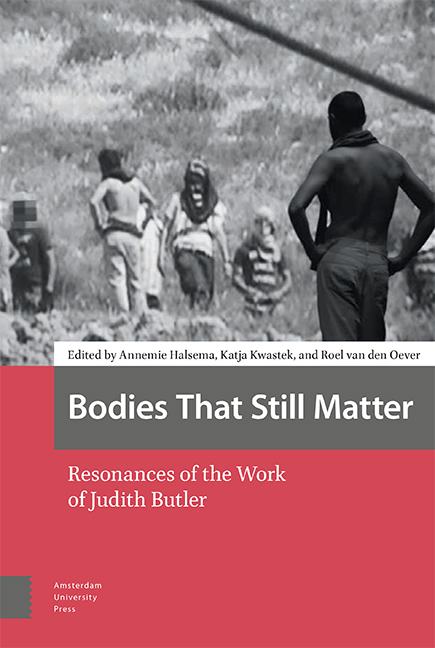On Butler’s Theory of Agency
Published online by Cambridge University Press: 27 May 2021
Summary
Abstract
This essay addresses the notion of agency in Judith Butler's work. Its central claim is that her political philosophy revolves around a specific understanding of agency, even a theory of agency, which has not as yet received due attention. The first part of the essay examines two main thought traditions in which agency became an operational notion, through the lenses of intentionality and constraints, voluntarism and determinism. The second part elaborates on the centrality of the body, the social, and the power in Butler's understanding of agency, conjoining agency with performativity. The essay argues that agency in Butler exceeds freedom, autonomy, and liberation, and has a potent political meaning of its own.
Keywords: agency, body, the social, the political
Jerome Schneewind ascribes the first philosophical use of the term “agency” to Samuel Clarke's theorization of the “Power of Agency,” that the latter used identically to the meaning of “free choice.” In 1731, he described the word as “generally including the power of beginning Thought as well as Motion” (Schneewind 1998, 313). From its philosophical debut, agency bore a certain ambiguity. Is it a power and if so, of what kind? Is it the property of the action or of the actor? Is there mastery involved in possessing such a power, or are we to speak of a power relation which is more intricate and less masterful? In this essay, I will address the notion of agency in Judith Butler's work, which is, I argue, one of the key notions in her overall philosophical architectonics. What exactly does agency refer to and what does it mean to offer a “theory of agency,” as she professes to have done?
The concept of agency in itself defies its being fixed. As a notion, it leans on and intersects with action/doing, act/deed, and actor/doer. It is difficult to say whether it refers to a who or a what; to something static and circumscribed, or to a dynamic process, always in potentia. It is equally hard to determine its conceptual autonomy from action, or draw clear boundaries between agency and the (free-willing) agent or the (intentional) subject.
- Type
- Chapter
- Information
- Bodies That Still MatterResonances of the Work of Judith Butler, pp. 21 - 30Publisher: Amsterdam University PressPrint publication year: 2021



